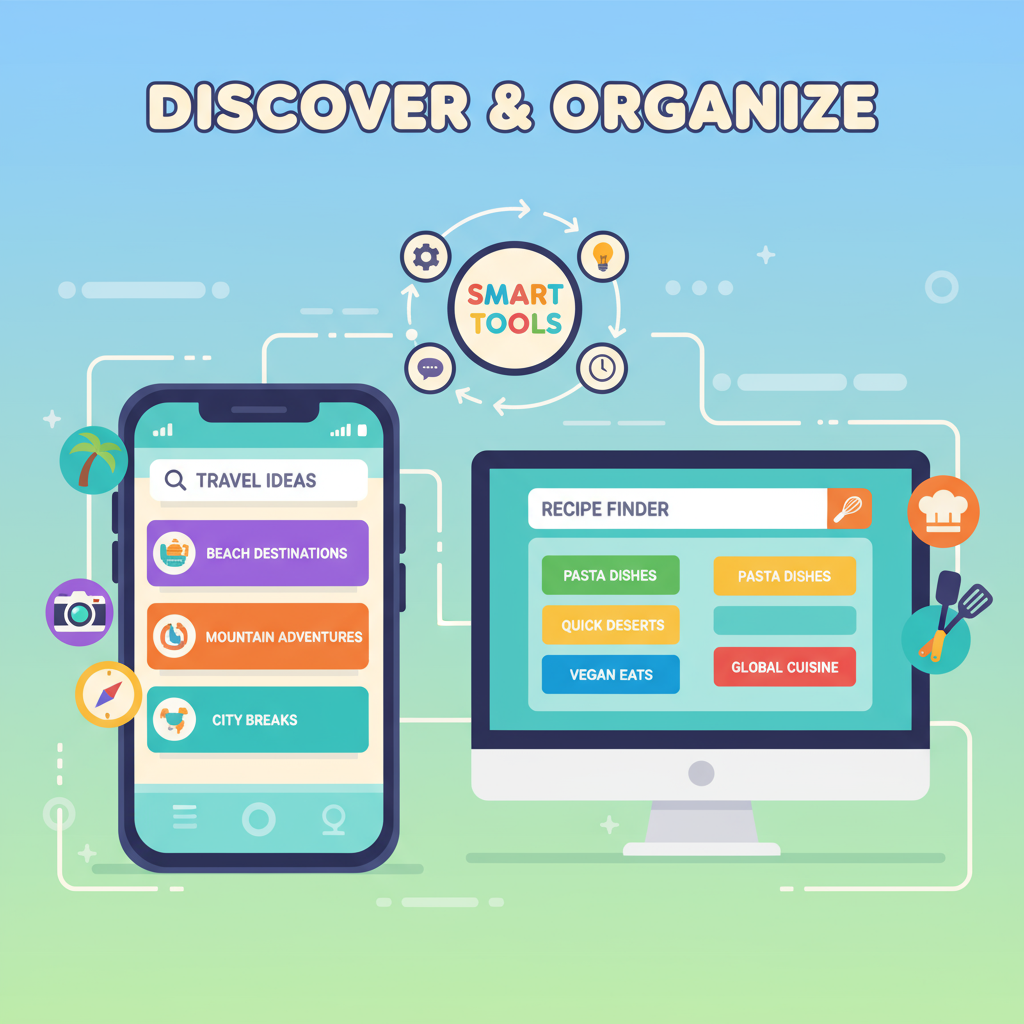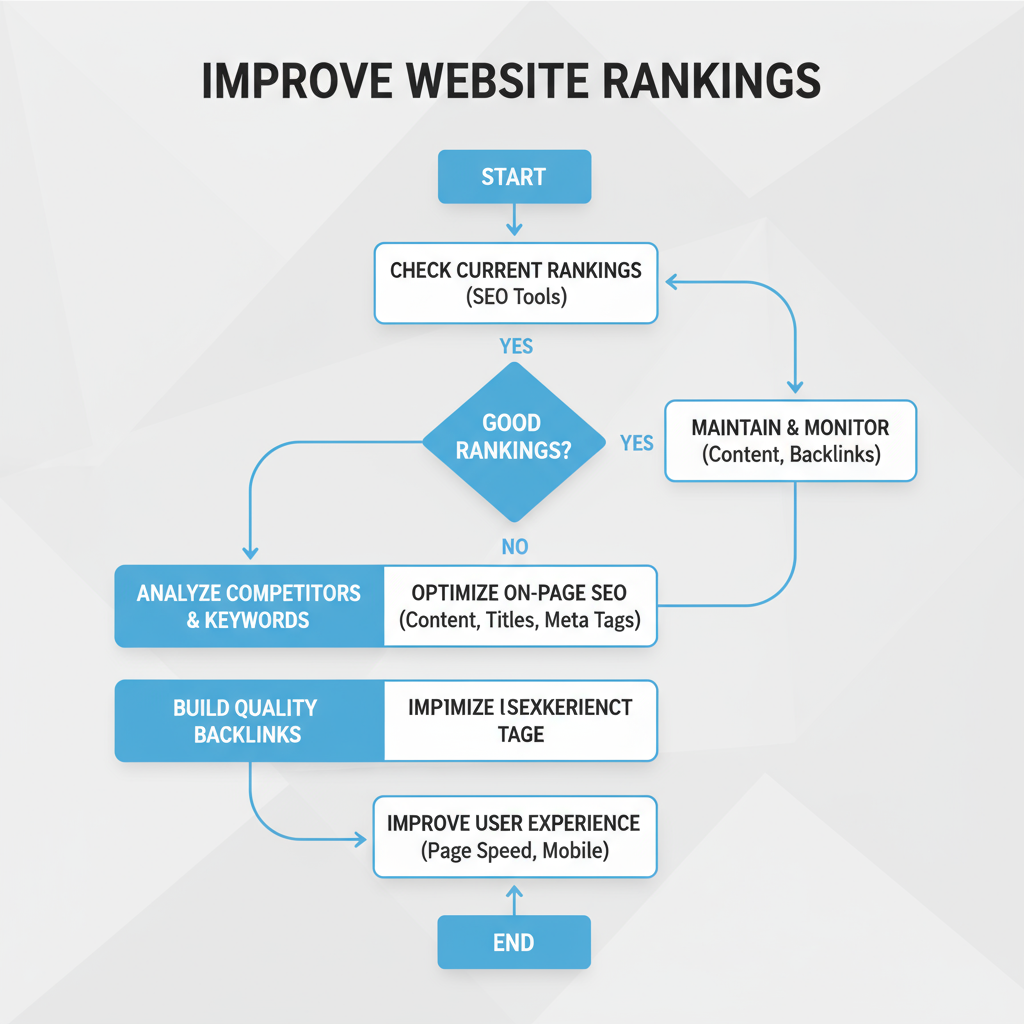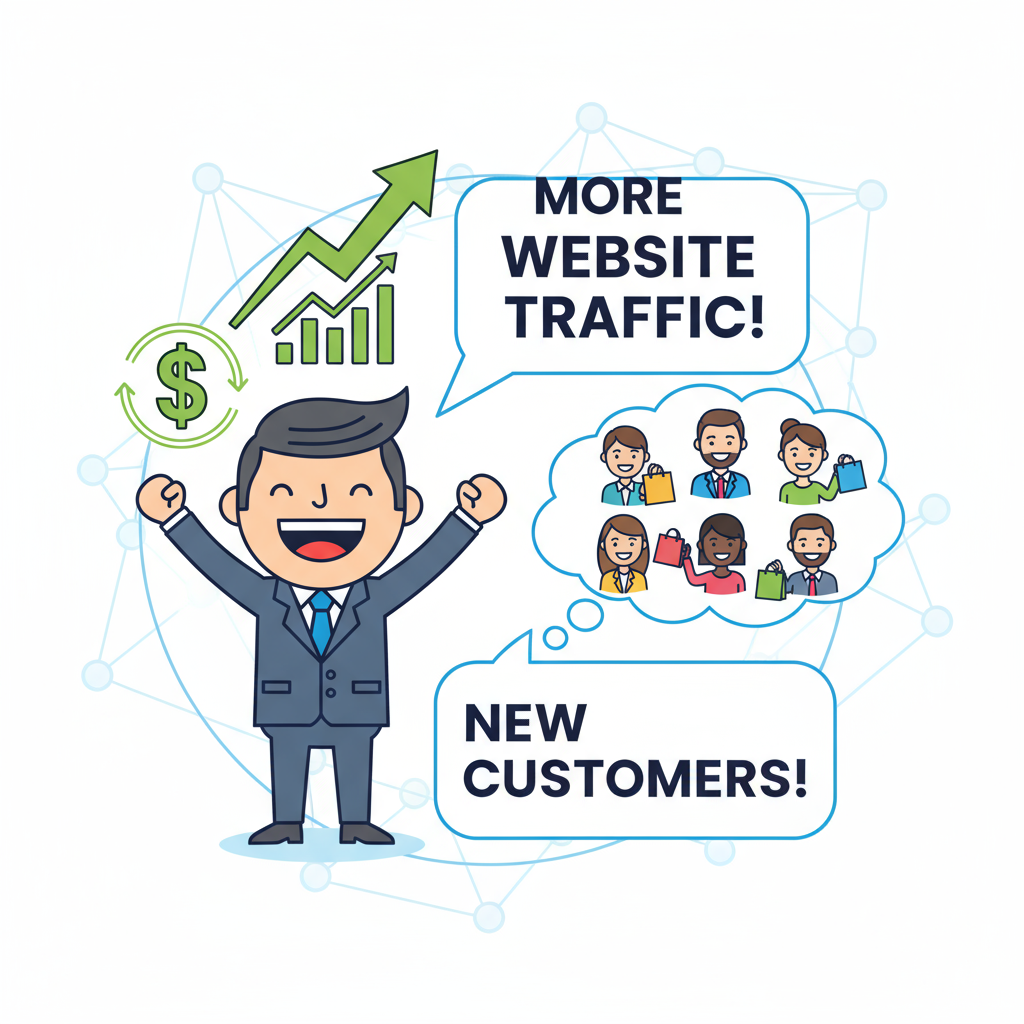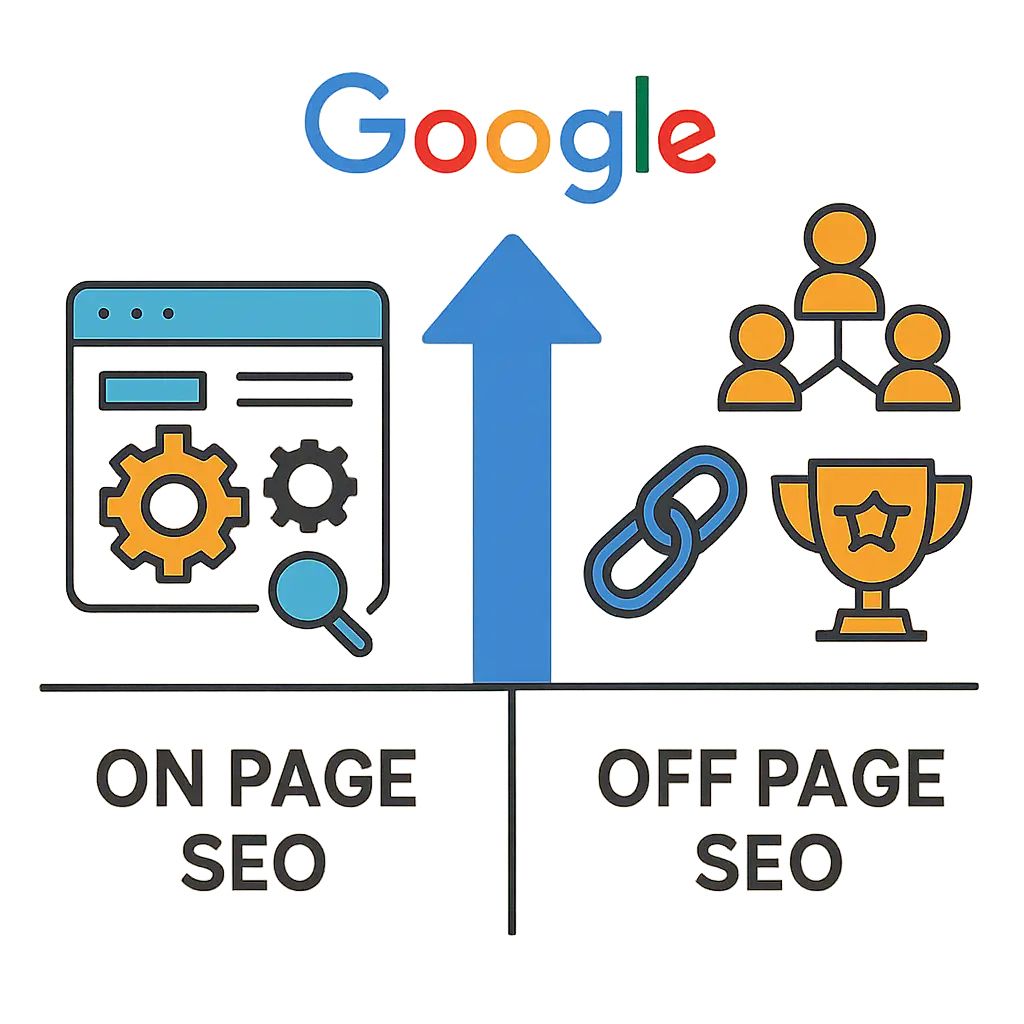What Is Search Engine Positioning SEO And Why It Matters for Your Business in 2025 2026
Search engine positioning SEO helps your website show up higher when people search on Google. Think of it like getting a better spot in line at a popular store. When your website appears first, more people click on it and buy from you.
Most people only look at the first few websites Google shows them. If your business isn’t there, you’re missing out on customers. Over 8 billion people search on Google every day. That’s a lot of potential customers you could reach!

What Is Search Engine Positioning SEO?
Search engine positioning is making specific pages on your website rank higher for certain words people search for. It’s different from regular SEO because you focus on exact spots instead of just making your whole website better.
For example, if you sell pizza, you want to be #1 when someone searches for “best pizza near me.” You pick the most important searches for your business and work hard to get those top spots.
Modern search results show more than just website links. Google now shows featured snippets, local business listings, and answer boxes. Smart businesses try to get into these special spots too because they get more attention.

Why Search Engine Positioning Matters More Than Ever
The top 3 search results get most of the clicks from people searching. Moving up just one spot can bring 30% more visitors to your website. That means more customers and more money for your business.
Most keywords 92%) get very few searches each month, but together they add up to huge numbers. Small businesses can target these easier words and still get lots of visitors who are ready to buy.
Unlike paid ads that stop working when you stop paying, good search positions keep bringing customers for months or years. It’s like planting a tree that keeps growing and giving you fruit.
How People Search Is Changing
More people now use voice search by talking to their phones instead of typing. They ask complete questions like “Where’s the best coffee shop near me?” Your business needs to be ready for these talking searches.
Many people find answers right on Google without clicking any websites. Google shows quick answers at the top of search results. Smart businesses make sure their information appears in these answer boxes.
Most people search on their phones now, not computers. Google looks at your mobile website first to decide your rankings. If your website doesn’t work well on phones, you’ll rank lower.

Main Parts of Good Search Positioning
Finding the Right Words to Target
You need to find words people actually search for when they want to buy what you sell. Don’t try to compete for super popular words like “pizza” because big companies already own those spots.
Look for longer, more specific phrases like “best pepperoni pizza delivery downtown”. These searches have less competition and people using them are ready to order. They convert better into actual customers.
Voice searches are usually longer and sound like questions. People might say “What’s the best Italian restaurant that delivers to my area?” Make sure your content answers these natural questions.
Creating Great Content
Your content needs to be really helpful and answer people’s questions completely. Google rewards websites that give users exactly what they’re looking for with detailed, accurate information.
Google looks for E E A T Experience, Expertise, Authority, and Trust. Show that you know what you’re talking about, have real experience, and can be trusted with accurate information.
Don’t just stuff keywords everywhere. Write naturally while including your target words in places that make sense. Focus on helping people instead of trying to trick search engines.
Technical Website Basics
Your website needs to load fast and work perfectly on mobile phones. Google uses page speed as a ranking factor, so slow websites get pushed down in search results.
Make sure search engines can easily read and understand your website. This means having clean code, good navigation, and proper labels on everything.

Advanced Strategies for 2025 2026
Voice Search Optimization
People talk differently than they type, so optimize for conversation-style searches. Instead of “pizza delivery,” someone might say “Where can I get pizza delivered right now?”
Try to get into featured snippets because voice assistants often read these answers out loud. Write clear, short answers to common questions your customers ask.
Local voice searches are growing fast. People ask “What’s open near me?” or “How do I get to the nearest pharmacy?” Make sure your local information is complete and accurate.
Using AI and New Technology
AI is changing how search works, but good content still wins. Focus on creating helpful, accurate information that real people want to read, whether it’s created by humans or AI tools.
Visual search is growing too. People take pictures to search for similar products. Make sure your images have good descriptions and are optimized for search engines.
Google’s new AI features show summaries at the top of search results. Make your content clear and comprehensive so it might get picked for these summaries.
Tools to Track Your Rankings
Free Tools You Can Use
Google Search Console is the best free tool to see how your website ranks. It shows which words bring people to your site and what position you’re in for each search.
Google Analytics shows how many people visit from search engines and what they do on your website. This helps you see if better rankings actually bring more customers.
Use Google Trends to see what people are searching for and when. This helps you create content about popular topics before they get too competitive. 22
Paid Tools for Serious Businesses
Professional tools like SEMrush and Ahrefs give you detailed ranking information and show what your competitors are doing. They cost money but provide much more detailed data. 23 24 25
These tools can alert you when your rankings change so you can act quickly. They also track your competitors and tell you when they move up or down. 21 26
Local businesses need special tools that track rankings in different cities. This is important if you serve multiple locations or want to expand to new areas.
Measuring Success
Important Numbers to Watch
Don’t just look at ranking positions. Track how many people click on your website, how many become customers, and how much money you make from search traffic.
Watch for special search features like featured snippets and local listings. Getting into these can be more valuable than moving up one regular search position.
Look at trends over time instead of daily changes. Rankings can bounce around, but the overall direction over months is what really matters.
Calculating Your Return
Track how much more money you make when your rankings improve. If moving from position 5 to position 3 brings 50 more customers per month, calculate what those customers are worth.
Compare the cost of SEO to paid advertising. Good rankings often bring customers much cheaper than Google Ads, and the results last longer.
Watch your competitors too. If they’re moving up while you stay the same, you’re actually losing market share.

Common Mistakes to Avoid
Don’t Overdo Keywords
Stuffing too many keywords into your content makes it hard to read and can hurt your rankings. Write for people first, search engines second.
Focus on answering questions and being helpful instead of repeating the same words over and over. Google is smart enough to understand what your page is about without keyword spam.
Quality content that helps people will always beat keyword-stuffed junk. Spend time making your content the best answer to what people are searching for.
Understand What People Really Want
Don’t just target keywords without understanding why people search for them. Someone searching “pizza recipe” wants to cook, not order delivery.
Look at what Google currently shows for your target keywords. If all the top results are how-to guides, don’t try to rank a product page there.
Match your content type to what searchers expect. Give people exactly what they’re looking for, not what you want to sell them.
Don’t Ignore Mobile and Local
Most searches happen on phones now, so your website must work perfectly on mobile devices. If it doesn’t, Google will rank you lower.
Local businesses need complete and consistent information everywhere online. Make sure your name, address, and phone number are the same on your website, Google, Facebook, and directory sites.
Speed matters even more on mobile. If your website takes too long to load on phones, people will leave and go to your competitors.
Future-Proofing Your Strategy
Prepare for Changes
Google changes its ranking rules regularly, but focusing on quality content and good user experience always works. Don’t chase quick tricks that might stop working.
Build a strong brand and reputation online. Well-known brands often rank better because people trust them and click on their results more often.
Keep learning and adapting. The businesses that stay current with changes and keep improving will always beat those that set and forget.
Key Takeaways
- Search positioning helps you show up first when customers search for your products or services
- Top 3 results get most clicks, so every position higher brings significantly more customers
- Voice search and mobile are growing fast – optimize for how people actually search today
- Focus on helpful content and good user experience rather than keyword tricks
- Free tools like Google Search Console can track your progress effectively
- Local businesses especially benefit from positioning for “near me” searches
Simple Action Plan
Search engine positioning works best when you focus on being helpful to your customers. Start by finding what questions your customers ask most often. Create content that answers these questions better than anyone else.
Use free tools to track your progress and see what’s working. Don’t expect overnight results – good positioning takes 3 6 months to show real improvement.
The businesses winning online are those that make their customers happy first and worry about search engines second. Ready to start getting more customers from Google? Begin with one important keyword and make the best possible content about that topic.
Frequently Asked Questions
Q How long before I see results?
Most businesses see some improvement in 3 6 months. Big changes usually take 6 12 months depending on your competition.
Q Can I do this myself or need help?
Small businesses can start with basic positioning using free tools. Larger businesses often hire experts to save time and get better results.
Q What if my competitors are already #1?
Look for longer, more specific keywords they might have missed. There are always opportunities if you get creative with your keyword research.
Q Is voice search really important?
Yes! More people use voice search every day, especially for local businesses. Optimize for how people actually talk, not just type.
Q How much should I spend on this?
Start small with free tools and basic improvements. Most small businesses see good results spending $500 2000 per month on professional help.

